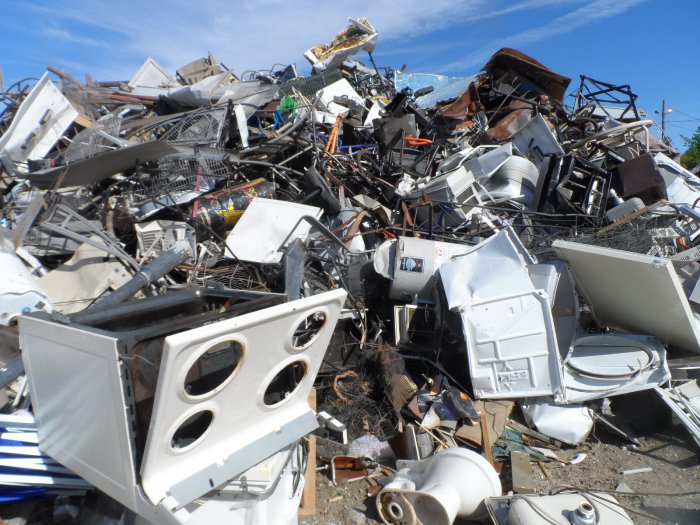Warehouses, malls and shops are often affected during disasters. Even if the day-to-day business in the commercial sector is not regarded as environmentally harmful, a disaster can convert a mall or a warehouse into an environmental hazard, depending on the potential release of large amounts of detergents, cleaning agents and other household chemicals, batteries, etc. In rural areas, warehouses can also store nutrients and pesticides.
After floods and tsunamis, the commercial disaster waste is normally mixed with sludge and mud. Following earthquakes and tsunamis, containers and storage cylinders can be destroyed, and their content may be mixed with rubble as well as manufactured goods and products.
